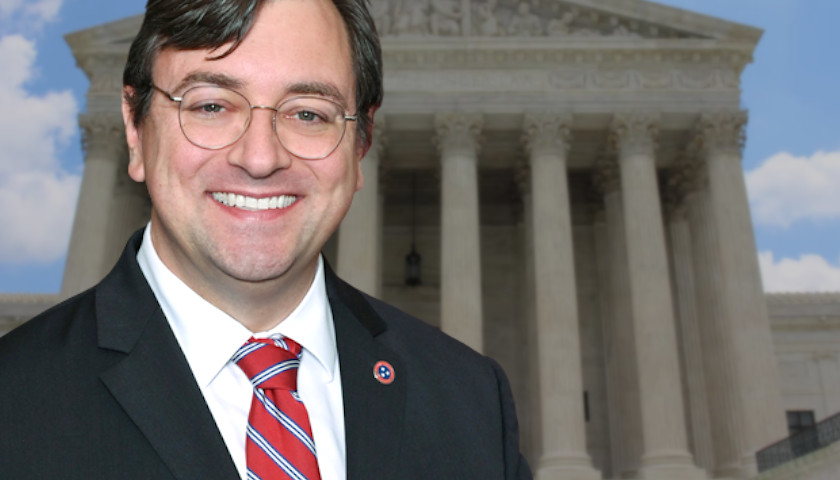Tennessee Attorney General Jonathan Skrmetti announced Tuesday that he led a coalition of 25 states and the District of Columbia in filing an amicus brief at the United States Supreme Court in Gonzalez v. Google.
The state’s amicus brief urges the Supreme Court to “interpret Section 230 of the federal Communications Decency Act (1996) narrowly to ensure technology companies remain accountable to state consumer protection laws” as the Gonzalez case marks the first time the Supreme Court has addressed the meaning of Section 230, according to Skrmetti’s office.
The Gonzalez case emerged from a lawsuit from the murder of 23-year-old Nohemi Gonzalez in 2015. An attack by ISIS-affiliated terrorists killed Gonzalez and at least 130 others in Paris. As a result, Gonzalez’s family filed a lawsuit alleging YouTube’s algorithms led users to recruitment videos for ISIS, and therefore Google, YouTube’s parent company, was partially responsible for Nohemi’s death. Google argued Section 230, which prevents internet companies from being liable for user-posted material, prevented any liability, according to Skrmetti’s office
In the amicus brief, the states explained that judicial expansion of the immunity of internet “publishers” under Section 230 has made remedying internet-related wrongs exceedingly difficult. It is stated in the brief, “What was enacted as a narrow protection from defamation liability has become an all-purpose license to exploit and profit from harmful third-party conduct, with ordinary people left to pay the price.”
As noted by Skrmetti’s office, the Supreme Court will answer a single legal question in the Gonzalez case: “Does section 230(c)(1) immunize interactive computer services when they make targeted recommendations of information provided by another information content provider, or only limit the liability of interactive computer services when they engage in traditional editorial functions (such as deciding whether to display or withdraw) with regard to such information?”
“Big tech is not above the law,” Attorney General Skrmetti said in a statement. “Over the years, Section 230 has been increasingly misread as giving tech companies total immunity from legal liability. This case gives the United States Supreme Court an opportunity to clarify that the law means what it says, that Section 230 provides important protection to promote free speech but it does not give tech companies a free pass to hurt their users.”
– – –
Kaitlin Housler is a reporter at The Tennessee Star and The Star News Network.








